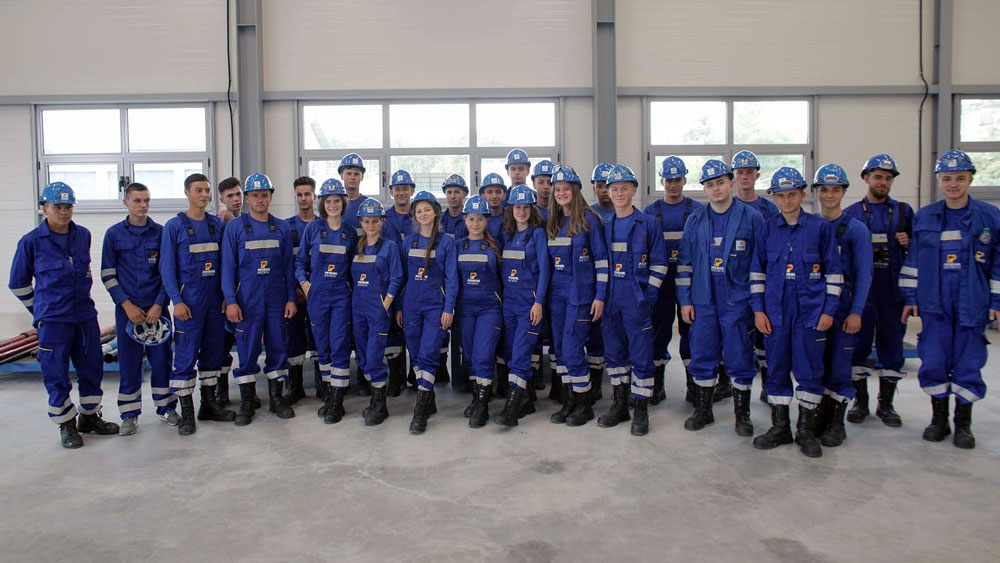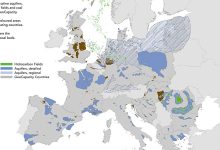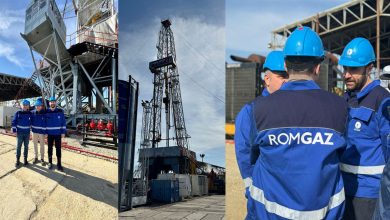Dual Education for the Future Oil and Gas Specialists
Lack of workforce, a thorny issue
At a time when the lack of workforce is a major issue for employers in Romania, legislating the dual education could be a starting point for filling this gap. The companies that believed in this saving solution include OMV Petrom.
The Oilmen’s School (Scoala Petrolistilor) is the initiative through which OMV Petrom has created and supports 6 vocational education classes, with majors in oil and gas industry. Two generations of future oil and gas specialists have been trained between 2015 and 2019 in 3 technological high schools in the country: ‘Astra Pitesti’ Technological High-School, ‘Grigore Cobalcescu’ Technological College in Moinesti and ‘Voievodul Mircea’ Technological High-School in Targoviste.
The students get a professional qualification recognized at European level and depending on their scholar performances, OMV Petrom offers students a monthly study scholarship up to RON 700. So far, around EUR 110,000 have been allocated to rehabilitate classrooms and improve laboratories in the 3 partner high schools with equipment mandatory for students’ practice. Together with the Ministry of Education and Scientific Research, OMV Petrom employees developed updated training materials that served teachers and students.
In 2018, the first generation of students from Oilmen’s School passed the professional skills certification exam. Assessed by OMV Petrom specialists, the 83 students successfully proved what they learned during the 3 years of theoretical and practical training in vocational school. Moreover, 25 of these students of the Oilmen’s School are now OMV Petrom’s employees.
EUR 500,000 for SMART projects
RO SMART in Andrei’s Country (Tara lui Andrei), now at its second edition, is a national projects competition, which through technology and digitalization transforms Romanian communities in the communities of the future. OMV Petrom looks for those innovative projects that aim at using technology and digitalization to improve the quality of life, for efficiency in terms of resource consumption and for a more efficient access to public services. The competition focuses on 5 key areas: education, health, environment, transport and infrastructure.
Last year, OMV Petrom offered grants totalling EUR 400,000 for SMART projects proving that through technology, the future can be made present. This year, the total value increases up to EUR 500,000.
One of these projects is ‘AV1 Robot – The voice of children with cancer in Romanian schools.’ With the help of AV1, children with cancer can attend classes along with their school colleagues and teachers, even when they are in hospital, just by using a phone or a tablet. AV1 Robot is taking the child’s place in class, which, from a distance, can benefit from the entire scholar experience – takes part in classes and is next to his colleagues on recess. This cute robot represents the eyes and voice of sick children enrolled in school, in Romania.
In 2019, OMV Petrom sponsored with EUR 10 million the construction of the first Pediatric Oncology and Radiotherapy hospital in Romania, a project developed by the Give Life Association (Asociatia ‘Daruieste viata’). Of the EUR 10 million, 5 million will be used for the acquisition of the medical equipment required for diagnosis and treatment of pediatric cancer: a radiotherapy machine, a computer tomography device and other equipment for the operating theatre. Also, other 5 million euros will be used for installation works and interior design.
What does dual education mean
Dual vocational education is organized after the completion of the 10 compulsory grades, compared to vocational education of two or three years, which is organized at the end of the grade 8 and 9 respectively. The new type of dual vocational education is different because it is organized only at the request of economic operators. Educational authorities are responsible for providing human and financial resources and organizing technical theoretical training in school (1-2 days per week) and the employer must provide human and financial resources and organize practical training, at the workplace (3-4 days).
This form of vocational education is complementary to those currently in place, and GEO 94/2014 provides the legal framework for organizing it, giving economic operators the opportunity to get involved directly in all the components of training the workforce they need. Dual education is organized based on a labour contract, a novelty being the fact that it is carried out on the basis of a contract of employment concluded between the economic operator and the student. Basically, dual education offers graduates the opportunity to enter the labour market and, at the same time, to continue their professional training at a higher level of qualification. Graduates from previous series who left the education system after graduating from compulsory education without completing their training with a qualification or without skills to offer them employment opportunities also have access to dual education.







